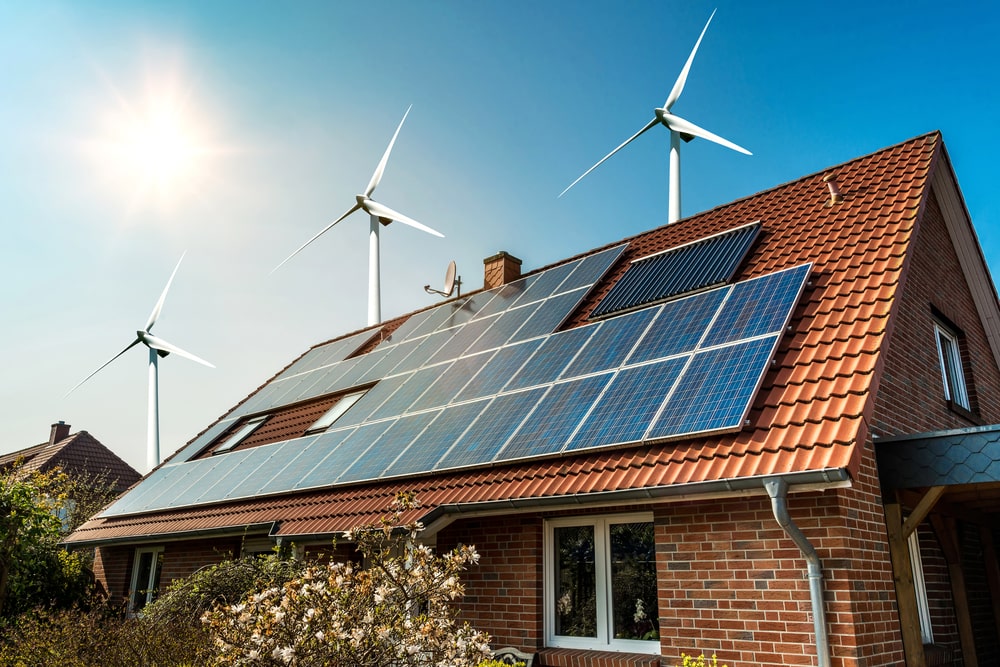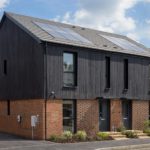Sector - Environment
Implementing green initiatives for the housing sector

With the UK committed to reaching net zero emissions by 2050, the housing market – as one of the biggest industries across the country – will play an important part in achieving this ambitious goal. To do this though, it will be key that housebuilders and developers – which are said to contribute 49% of the UK’s total greenhouse gas emissions – look at their current business models and introduce the instrumental green initiatives and schemes to make this possible, says Israel Moskovitz, founder of the Avon Group.
EV chargers
Back in 2021, former Prime Minster Boris Johnson announced that all new homes and buildings would be required to install electric vehicle charging points, as a way of effectively introducing more electric vehicles into the lives of UK homeowners. This was, and continues to be, a great initiative to help increase sustainability, and encourages businesses to focus on the longevity of its buildings and the protection of the buyers. All in all, as a property management company, we see EV chargers becoming more commonplace for residents and homeowners are being extremely positive, especially as we look forward to the net zero targets. It is also necessary that for this to make a significant different, more action needs to be taken on building the necessary electric charging infrastructure across the UK. The technology will not be adopted by the wider community unless drivers know they have safe places to charge both at home and on the road.
Government initiatives
Whilst construction and development professionals can certainly help to provide more environmentally friendly homes, people will also government to provide guidance and to set environmental goals. Last year, the government was considering proposals to push homeowners towards eco homes via an increase in stamp duty for non-green homes, as The Energy Efficiency Infrastructure Group, a trade body, drew up plans for a “green stamp duty” system. Within the mini-budget last month, Stamp Duty in general was scrapped on many homes, as the threshold was raised. To make a difference, the government should really encourage househunters into more eco-friendly homes, by making further changes to taxation that benefit people buying greener homes.
This type of change could be huge progress in terms of increasing the energy efficiency of UK homes and would help inspire widespread change in energy efficiency standards and is most likely one of the most efficient ways of creating a real effect within the industry in terms of the environment.
With that said, if the industry is moving towards a completely greener future, these initiatives should not be alone and instead part of a wider green scheme to help hit the goal. Further legislation around green initiatives will also need to be introduced so that property owners and developers feel the pressure to act quickly.
Environmentally friendly developments
Construction and development companies can also implement sustainability directly into their practices through the materials they use. Technological advancements have allowed for the creation of more ecological materials, which serve the same purpose as less environmentally friendly options and are much more energy efficient, such as insulated access doors.
Those within the housing industry should explore such materials and how it can be used across their work. Other methods include reuse projects, which make use of and transform old buildings, as well as tighter controls on waste management.
Making your own home eco-friendly
There are also things that existing residents can do to their own property, whether this a rental or your lived-in property. Upgrading a home’s insulation is one of the most efficient ways to improve your home’s sustainability, as less heat is lost through walls and floors. Insulating your loft is also important, as this is one of the primary areas where heat is lost and will help to save on costly heating bills in the winter. If you decide to renovate your house, adding a cavity wall or solid wall insulation can be a great addition. In a similar vein, upgrading your windows to double glazing can also help to cut down on heat loss.
Alternatively, considering renewable energy systems, such as solar panels or biomass boilers, can also be a great option for those looking to make a real impact on the sustainability of their home. Whilst the installation is costly, there are considerable benefits in the long run both economically and environmentally.
If you would like to read more stories like this, then please click here
Related Articles
More Environment News
- 151 new flood schemes delivered
4 Nov 25
government has delivered 151 new flood defence schemes in its first year
- Government commits to record levels of funding for flood resilience
24 Sep 25
A total of £2.65 billion is being spent over two years on new flood defences.
- COWI partners with University of Strathclyde to trial environmental DNA for sustainable infrastructure
18 Sep 25
COWI has partnered with the University of Strathclyde to trial the use of environmental DNA (eDNA)






